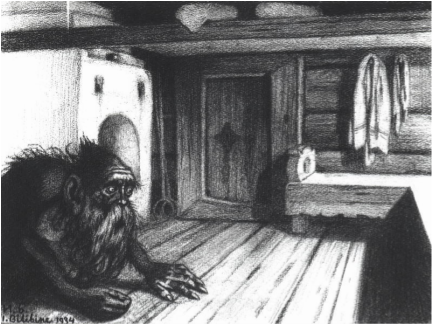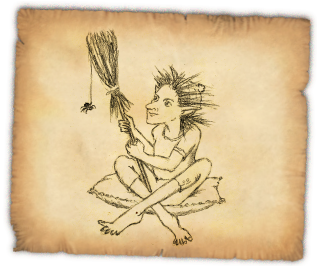The COFGODAS

People
used to think that Cofgodas lived under the bed, but depending on the type of
Cofgoda – that could be a good thing, especially if you are untidy.
The origin of this myth is unclear. The name comes from the Old English cofgoda, (cof ‘chamber,’ goda ‘spirit’). A similar German word, Kobold, which means ‘hut dweller’, appears to be very close to the modern word Goblin. This similarity has led mythologists to suggest that the Cofgodas are evil and mischievous demons.
The origin of this myth is unclear. The name comes from the Old English cofgoda, (cof ‘chamber,’ goda ‘spirit’). A similar German word, Kobold, which means ‘hut dweller’, appears to be very close to the modern word Goblin. This similarity has led mythologists to suggest that the Cofgodas are evil and mischievous demons.

However, some mythologists believe that the Cofgodas are an entirely separate kind of creature which is good-natured.
Jacob Grimm wrote in his book Teutonic Mythology that the Anglo-Saxons used to worship ‘house spirits’. These spirits helped keep the home neat and tidy, and kept pests such as spiders and ants from invading.
But just as with all spirits, if you didn’t keep them happy, they might play tricks on you!
So just remember, the next time you can’t find something, perhaps a Cofgoda has taken it!
Jacob Grimm wrote in his book Teutonic Mythology that the Anglo-Saxons used to worship ‘house spirits’. These spirits helped keep the home neat and tidy, and kept pests such as spiders and ants from invading.
But just as with all spirits, if you didn’t keep them happy, they might play tricks on you!
So just remember, the next time you can’t find something, perhaps a Cofgoda has taken it!

